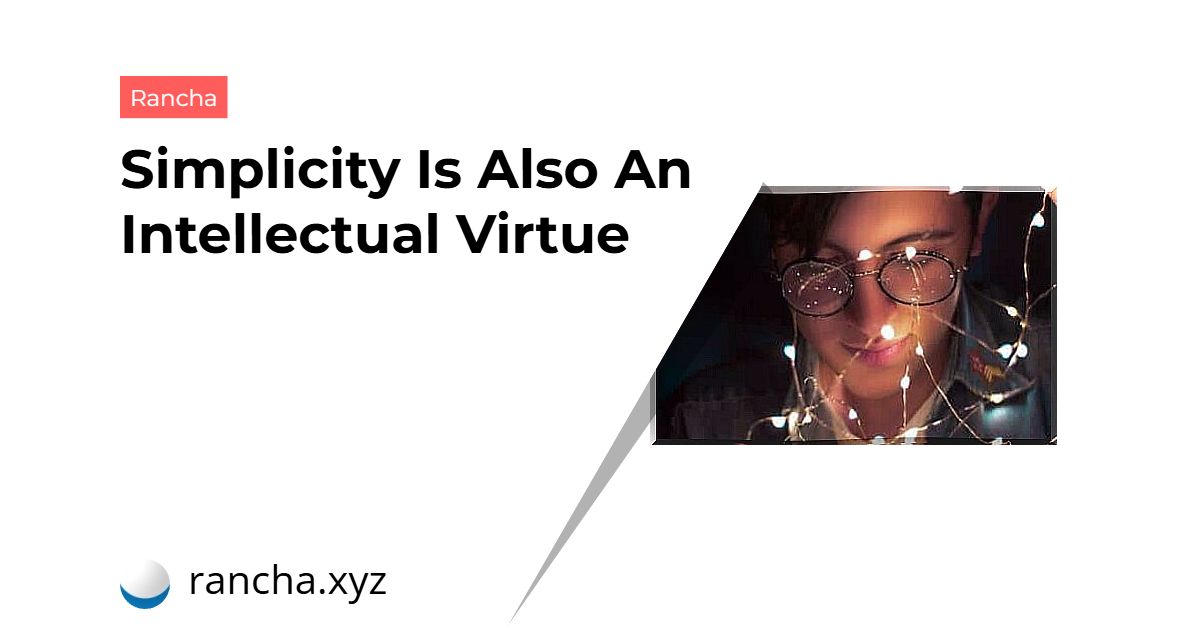Simplicity is also an intellectual virtue. After all, we all act according to what we think and many of us have met people who are proud of spirit and heart, people who interpret humility as the Russian language, something indecipherable and not worth using. Yet why is this kind of self-centeredness so recurrent?
This is not a random question or a whine. Lately, the voices that reaffirm that our opinion is unique and true are increasingly appreciated. It’s been more and more difficult to hear apologies, to admit that maybe we were wrong about something and that things probably could have been better. Intellectual egos flood the social networks and sometimes even the tables where we socialize.
An example of this is the following: just over a year ago, psychologists at the Max Planck Institute for Human Development proposed something decisive. The suggestion was addressed to all scientific communication: due to the large number of erroneous or not valid researches, it was necessary to publish a public apology to warn that this view was wrong.
According to the promoter of this idea, Dr. Julia M. Rohrer, the lack of intellectual humility is a cultural factor. It is so ingrained in our thoughts and behavior that it is necessary for someone to set themselves as an example to be followed.

Simplicity is also an intellectual virtue.
Have you ever felt frustrated because someone refused to change their minds about an aspect whose eyes were completely wrong? Certainly many times, isn’t it? Well, let’s think about the last time we ourselves realized our mistake and were able to admit it. Was it a long time ago? Or is it something common for you?
Admittedly, people have a hard time being aware that they sometimes make mistakes. At times, our ignorance about some aspect is more than evident. However, as we said before, it is the culture itself that leads us to fake this strength… this lack of vulnerability; a kind of intellectual certainty that is not open to mistakes or to admit them.
What’s more, people often look down on those who change their minds. It’s as if the values, perspectives and beliefs that we maintain today need to be maintained compulsorily in order to demonstrate consistency with ourselves. But, in fact, we are more than obliged to vary some concepts as a result of our experience and maturity. Otherwise, we wouldn’t be evolving.
Acknowledging our ignorance: a great value
“Wisdom is in recognizing one’s ignorance, ” Socrates said. “The display of knowledge itself is the worst plague for human beings,” stated Michel de Montaigne in the 16th century. Few philosophers were unaware of the lack of this dimension that, in psychology, we call intellectual humility.
Simplicity is also an intellectual virtue because, with it, we always keep in mind that we are susceptible to error, that it is advisable to take other opinions into account and that it is necessary to be aware of our blind spots. However, what actually are these blind spots?
These blind spots are blind spots that our brain doesn’t notice. In other words, it is those biases we are not aware of, it is our mental rigidity and cognitive closure with which we create barriers against contradictions, uncertainties and contrary opinions.
Mark Leary, a social and personality psychologist at Duke University, points out something important: ignorance itself is invisible to ourselves. We don’t see it, and if we can see it, it will be very difficult to admit it, because accepting that we are wrong creates suffering. On the other hand, the simple person, the mind that applies intellectual humility, will have no problem accepting error. Doing so facilitates advancement, learning, and even cognitive enrichment.

The Importance of Intellectual Virtue
There are virtues that go unnoticed, but which nevertheless have the remarkable ability to transform the world into a better place. Somehow, those who boast an excess of self-confidence and arrogance, who show themselves to be infallible and inflexible, always get more attention than others. They are the ones who raise flags like “I know everything and I’m never wrong!” .
And yet they make mistakes. They are wrong once, twice, ten times. Because those who don’t accept their mistakes repeat them. On the other hand, the person with cognitive and emotional humility monitors himself and dares to do the right thing, not the easy thing, even if it means making mistakes and accepting other perspectives.
Because, after all, simplicity is also an intellectual virtue. It stands out as an exercise in indisputable social and emotional health with which we dethrone the ego to elevate humility, making prejudices fall to the ground to open the doors to flexibility and understanding. Few psychological trades are needed as much today. How about trying to exercise this ability? Let’s strive to make it real!
 rancha.xyz Be free to choose their own route to self-knowledge, health and balance of body and soul.
rancha.xyz Be free to choose their own route to self-knowledge, health and balance of body and soul.




